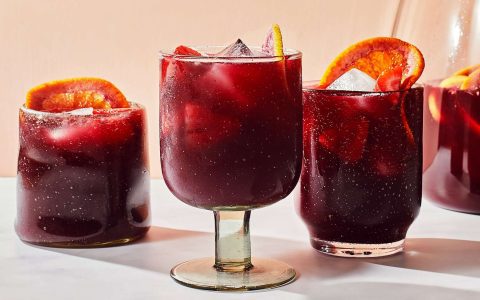Nutritional Profile Comparison
Standard wine (red or white) primarily contains water, alcohol, and small amounts of polyphenols like resveratrol, especially in red wine. Sangria introduces significant variables: added sugar (often substantial, from syrups, juices, or sodas) and fruit chunks. This drastically alters the macronutrient content.
Alcohol Content and Moderation
Both deliver comparable amounts of alcohol per equivalent serving volume (12-15% ABV range for wine, potentially similar dilution in Sangria depends on the recipe). Health benefits (like cardiovascular effects linked to moderate red wine consumption) are associated exclusively with moderate intake. Sangria's palatable sweetness increases the risk of unintentional overconsumption, negating any potential benefits and elevating health risks.
Impact of Added Sugars in Sangria
Sangria's primary health disadvantage is its significantly higher sugar content:

- Contributes substantially to caloric density.
- Can cause rapid blood sugar spikes and increased insulin demand.
- Consistent high sugar intake is linked to inflammation, weight gain, fatty liver disease, and increased cardiovascular risk.
Polyphenol Content & Health Implications
Dry red wine is a notable source of polyphenols, such as resveratrol and flavonoids. Research suggests these antioxidants may offer cardioprotective and anti-inflammatory benefits when consumed moderately. Sangria: The dilution effect (from added juices/soda/water) reduces the concentration of wine's original polyphenols per serving. While fruit pieces contribute some vitamins and fiber, their quantity is limited, and they do not counteract the negatives of high added sugar.
Which is "Better" for Health?
Neither beverage is "healthy" due to the inherent risks of alcohol. However, when evaluating relative health impacts:
- Standard Dry Wine (especially red): Generally the better choice in this comparison if consumed strictly in moderation (1 drink/day for women, 2 for men). It offers potential polyphenol benefits without the high added sugar load.
- Sangria: Higher in added sugars and calories, promoting overconsumption and associated metabolic risks. Its dilution reduces potential antioxidant benefits from the wine base.
Practical Advice
Health-Conscious Choice: Opt for a small glass of dry red wine over Sangria if choosing an alcoholic drink. Minimize Risk: Limit portions regardless of choice. If consuming Sangria, make it with minimal added sugar, using primarily wine and fresh fruit, and avoid sugary sodas/juices.












